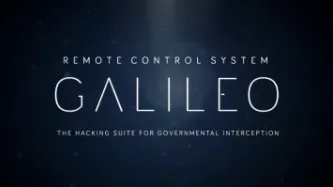Search
Content type: News & Analysis
According to Snowden documents analysed by Privacy International, the Australian Signals Directorate had access to and used PRISM, a secret US National Security Agency program which provides access to user data held by Google, Facebook and Microsoft.
This is the third spy agency of the 'Five Eyes' alliance confirmed to have had secret access to Silicon Valley company data - an alliance whose rules and policies remain classified. Earlier this year, a British court ruled that GCHQ access to…
Content type: News & Analysis
Privacy is a human right, and needs very clear legal protections. 'Safe Harbor' was clear as mud and placed privacy rights globally at risk.
Today's European Court of Justice decision should be no surprise for industry or governments. For over fifteen years the U.S. Government has resisted implementing basic and effective privacy law and created absurd stopgap measures because U.S. Congress is incapable of acting upon what consumers and citizens have long asked for. The fact over 100 countries…
Content type: Press release
Human Rights Watch and three individuals have today lodged a legal challenge to establish whether their communications were part of those unlawfully shared between the US National Security Agency (NSA) and UK Government Communications Headquarters (GCHQ).
Despite billions of records being shared every day between the NSA and GCHQ, and that historical sharing having been declared unlawful [PDF], the Investigatory Powers Tribunal (IPT) has not yet confirmed to any claimant that their…
Content type: News & Analysis
While two of the Vice journalists who were recently arrested in Turkey and charged with terror offenses have now been released, this remain a deeply concerning incident.* It is the latest episode in what is a pincer movement against our right to protect our data.
Two British journalists and their Turkey-based Iraqi translator working for VICE News were arrested last Thursday and charged with "engaging in terrorist activity". According to Turkish authorities, one member of the group had an…
Content type: News & Analysis
Here are eight things we have learned from this week's hack of some 400GB of internal company material and correspondence from Italian surveillance company Hacking Team.
The Citizen Lab was right
The Citizen Lab, who in 2014 identified some 21 countries that are potential customers of Hacking Team, were right about all of them. A 2015 report stated that there was likely to be more. In fact, at least 45 countries are purchasers of Hacking Team's…
Content type: Press release
Governments must accept they have lost the debate over the legitimacy of mass surveillance and reform their oversight of intelligence gathering, Privacy International and Amnesty International said today in a briefing published two years after Edward Snowden blew the lid on US and UK intelligence agencies’ international spying network.
“The balance of power is beginning to shift,” said Edward Snowden in an article published today in newspapers around the world. “With each court victory,…
Content type: News & Analysis
UPDATE (21st July 2015): The deadline for submissions was Monday 20 July, 2015. Privacy International has been working hard since the proposed rule was announced to analyse its potential effectiveness and any potential effects the proposed rule could have for security research.
UPDATE (12th June): The US Bureau of Industry and Security has published (http://www.bis.doc.gov/index.php/policy-guidance/faqs#subcat200) a clarification of the scope of the proposed rule implementing…
Content type: Long Read
Few revelations have been been as troubling for the right to privacy as uncovering the scope of the Five Eyes alliance. The intelligence club made up of Australia, Canada, New Zealand, the United Kingdom and the United States has integrated its collection efforts, staff, bases, and analysis programs. Yet the legal rulebook governing how the agencies ensure the most comprehensive joint surveillance effort in the history of mankind remains secret.
The little that is known suggests a…
Content type: News & Analysis
The central premise of international intelligence cooperation is that states are able to both access valuable partner information to protect their national security, and focus their own resources elsewhere in a mutually beneficial way. But is it really a quid-pro-quo partnership?
As the Intercept recently revealed, German policy-makers certainly have reason to doubt that this would be the case. What Germany has learned, like many others before them, is that dependence on the…
Content type: News & Analysis
Investigations by Privacy International in co-operation with VICE Motherboard, reveal that Hacking Team has sold its Remote Control System to the US Drug Enforcement Agency and US military via a front company based in the US.
The investigation catalogues what is known about Hacking Team’s intrusive spyware that can remotely switch on the microphone on mobile phones, activate webcams, as well as modify and/or extract data from the computer or phone itself. Whether the export was corrected…
Content type: News & Analysis
FREAK, the latest security vulnerability to be exposed that has implications for millions of supposedly secure websites, is just the most recent example of something privacy and security advocates have been saying for some time: when governments meddle with our security technologies, it hurts us all.
When the State advocates for backdoors into our communications, they cannot secure them properly and malicious actors can get in. When our elected officials pontificate about spying on us to…
Content type: News & Analysis
Privacy International, Bytes for All and other human rights groups are celebrating a major victory against the Five Eyes today as the UK surveillance tribunal rules that GCHQ acted unlawfully in accessing millions of private communications collected by the NSA up until December 2014.
Today’s judgement represents a monumental leap forward in efforts to make intelligence agencies such as GCHQ and NSA accountable to the millions of individuals whose privacy they have violated.
The…
Content type: Press release
British intelligence services acted unlawfully in accessing millions of people’s personal communications collected by the NSA, the Investigatory Powers Tribunal ruled today. The decision marks the first time that the Tribunal, the only UK court empowered to oversee GHCQ, MI5 and MI6, has ever ruled against the intelligence and security services in its 15 year history.
The Tribunal declared that intelligence sharing between the United States and the…
Content type: Long Read
Modern day government surveillance is based on the simple concept of “more is more” and “bigger is better”. More emails, more text messages, more phone calls, more screenshots from Skype calls. The bigger the haystack, the more needles we can find.
Thanks to Edward Snowden, we know that this fundamental idea drives intelligence agencies like the NSA and GCHQ - the desire to collect it all, to generate gigantic haystacks through which to trawl. In the almost two years since the first of Snowden…
Content type: News & Analysis
UPDATE: Argentina's President Cristina Fernandez de Kirchner has announced plans to disband Argentina's intelligence agency. Go here for more, and keep reading below.
This post was originally published on 20 January 2015 by Privacy International's partner in Argentina, the Asociación por los Derechos Civiles (ADC). To read the original post, please go here.
In view of the serious incidents that took place on 18 January 2015, the Asociación por los Derechos Civiles (ADC)…
Content type: News & Analysis
Intelligence sharing agreements can be open and transparent. In fact, the Five Eyes have already disclosed information sharing agreements that relate to key international law enforcement and national security measures.
They’re called mutual legal assistance treaties, or MLATs, and they’ve existed between the Five Eyes, excluding New Zealand, for decades. MLATs define the scope of cooperation between States in criminal investigations: States share sensitive information in criminal…












